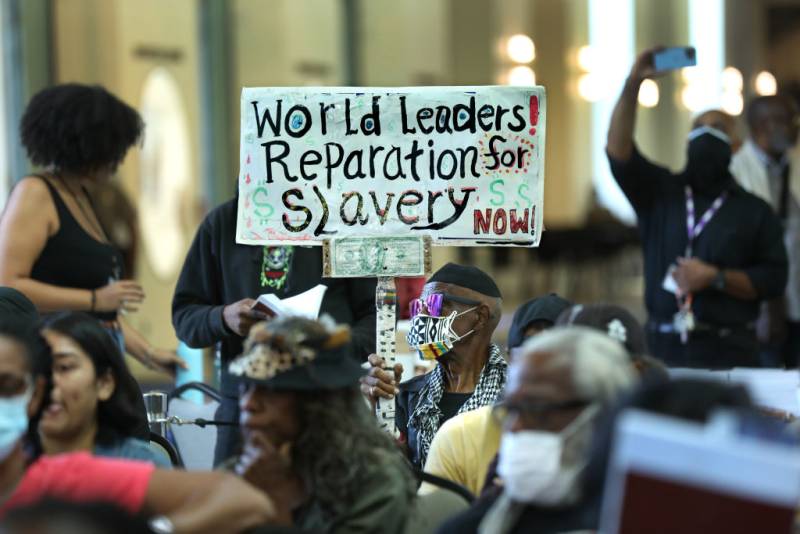In 2020, California became the first state to approve the creation of a reparations task force to study the state’s role in perpetuating systemic racism and to find ways to atone. Although California entered the union as a “free” state, it did not enact laws guaranteeing African Americans’ freedom, according to a draft report from the task force.
The state currently faces a projected $31.5 billion budget shortfall, which may reduce the possibility of legislative support for some of the task force’s more ambitious recommendations, including direct payments to eligible residents and the creation of a new state agency to help those families research their ancestors and file claims.
One key lawmaker, who is also a task force member, has already warned residents not to expect large payments.
The task force did not recommend specific payment amounts, but estimates from economists say the state is responsible for more than $500 billion due to decades of over-policing, mass incarceration and redlining that kept Black families from buying homes in appreciating neighborhoods.
Damien Posey, 44, grew up in historically Black neighborhoods in San Francisco, where he heard gunshots at night and was bussed to schools in neighborhoods that weren’t so welcoming to Black children. He spent a decade in prison on a weapons charge and later started a nonprofit called Us 4 Us Bay Area to mentor youth and reduce gun violence.
Meaningful reparations would include an official state apology, public funding for nonprofit organizations that assist Black residents, and cash reparations for every eligible person for the pay denied to their ancestors, who built this country with their labor, he said.
“And our people deserve it, honestly,” he said.
Compensation is an important part of state reparations proposals because Black Americans have “been deprived of a lot of money,” due to discriminatory policies, said Les Robinson, 66, an associate pastor at The Sanctuary church in Santa Clarita, about 30 miles north of Los Angeles.
But money isn’t everything, Robinson said, and the task force’s other important work shouldn’t be lost in a fixation on dollar figures alone. He pointed to efforts to retell California history through a different lens — one that examines the state’s role in perpetuating systemic racism despite its label as a “free” state.
Robinson was “hit by a tsunami of emotions” when he learned in 2017 he was descended from a man who founded the first Black church in California and played a critical role in the state’s groundbreaking African American community.
He was disappointed that more people — himself included — were not taught the story of Daniel Blue, his great-great-great-grandfather, who created what is now known as the historic Saint Andrews African Methodist Episcopal Church in Sacramento.
Robinson is skeptical that reparations will be approved by lawmakers, if history is an indicator.
“People wonder why African Americans at large are angry,” he said. “Because we’ve been lied to. We’ve been bamboozled. For centuries — not decades — centuries.”
Like Robinson, former Black Panther Party member Joan Tarika Lewis has been researching her lineage and was proud to discover that several ancestors came to California in the mid-19th century and helped other Black people escape slavery.
Lewis, who became the party’s first female activist when she joined as a teenager, wants more Black residents to learn about their heritage and for all Californians to know more about the contributions of Black community and civic leaders. Lewis, 73, also wants to raise more awareness about what the community has lost.
Her father operated a boxing gym in West Oakland that served as a community space for young people to learn from their elders. But government officials took the land, and in its place built a freeway and commuter line. The family was paid a pittance for what would go on to become valuable San Francisco Bay Area property.
Lewis is optimistic that state lawmakers can make reparations happen if they have the political will.
So is Vincent Justin, a 75-year-old Richmond resident and retired bus driver who has fought for racial equity for decades. He marched in the 1960s with Martin Luther King Jr., Huey P. Newton, Stokely Carmichael and other major civil rights figures.
Though the fight has been long, he hopes reparations will one day be approved at the federal level.

